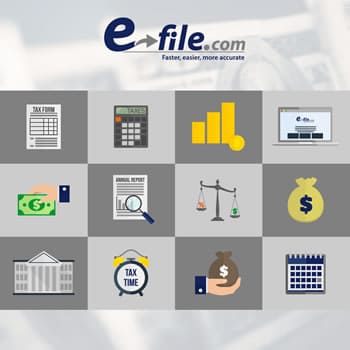Navigate Making Estimated Tax Payments
Though our formal tax day comes just once a year, the U.S. tax system requires some people and businesses to pay estimated tax payments based on the idea that people or businesses earning income should make an informed guess about how much tax they owe and pay the IRS that amount. Underpaying taxes can result in a tax payment penalty, but overpayment should result in a refund.
Making Estimated Tax Payments
Not everyone has to make estimated tax payments. The IRS exempts those who are filing as a self-employed individual, S corporation shareholder, and/or a sole proprietor, providing the estimated payment is less than $1,000.

Corporations must file estimated tax if they expect to owe $500 or more. The majority of people have employers who automatically take tax payments out of their paychecks. These employers are effectively making the estimated tax payments for the employee.
Most self-employed people and businesses must submit estimated tax payments to the IRS themselves or risk an tax underpayment penalty. Individuals who expect to make over $1,000 in interest, capital gains, or dividends, and couples whose withholding is not enough to cover the so-called “marriage penalty” should make estimated tax payments to avoid an underpayment penalty.
If you need to make an estimated tax payment, you can use Form 1040-ES—or Form 1120-W for corporations—to figure out what your estimated tax should be. Employees whose employers withhold taxes can ask their employers via form W-4 to withhold additional taxes if they believe they may be underpaying.
Estimated tax payments are typically made at least quarterly. Though these dates may vary by a day or two, the first quarter’s payments are due April 15th, the second quarter on June 15, the third quarter on September 15, and the fourth quarter on January 15.
Tax Payment Penalty Exemptions
Individuals may be able to avoid a penalty for underpaying an estimated tax if they paid at least 90% of the tax for the current year or 100% of the tax for the prior year, whichever number is smaller. Also, some people may be able to avoid a penalty if the failure to pay estimated tax was due to a death, a disaster, or an unusual circumstance such that it would be unfair to require payment. Those who became disabled in the last year, turned 62 or older, and retired in the last year may avoid a penalty if they could not pay for a good reason.
For information on ways to pay the IRS and installment plans click here.
